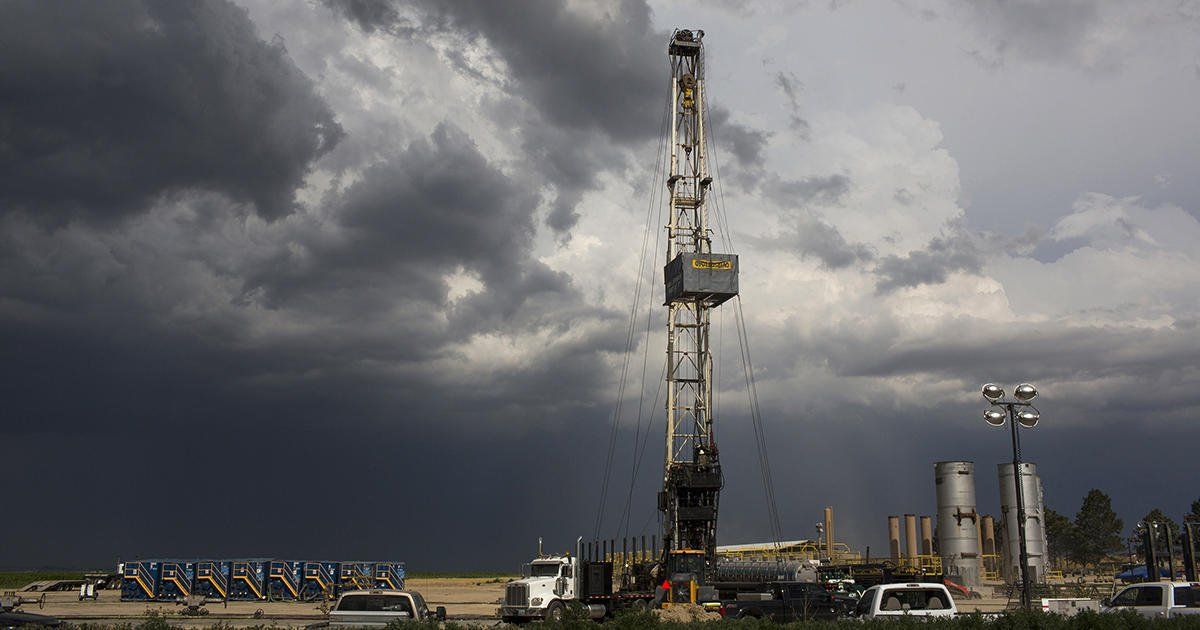EcoPerspectives Blog
Frack is Whack: Why Hydraulic Fracturing is Bad for People and the Planet
By Kristina O’Keefe, Staff Editor for the Vermont Journal of Environmental Law
March 23, 2022
Over the past 20 years, hydraulic fracturing has become the most popular method of extracting natural gas and oil . This process, also known as “fracking,” was discovered back in the 18th century and consists of sending a mixture of water, sand, and chemicals at high pressures which creates cracks within the sediment to release trapped gas and oil . While fracking has benefits such as increasing the availability of oil and natural gas which in turn leads to a decrease in energy prices , the negative impacts that this activity has are far greater than any benefits it supposedly brings . The use of fracking to extract fossil fuels is a very controversial process due to the overwhelming impacts it has in human and environmental health . Some of these impacts include contaminated drinking water, increased air pollution, and environmental degradation .
This year, environmental effects from fracking have been felt in Texas particularly . West Texas is home to the Permian Basin which supplies forty percent of the United States’ oil and fifteen percent of its natural gas . On February 4th, three earthquakes shook the ground of Midland, Texas, a town located within the Permian Basin region . While Texas is a plate boundary that sits on fault lines, this type of seismic activity is unusual for this area because it has been seismically inactive for millions of years . So why after 300 million years of sedimentation build up are these fault lines now so active that “[e]arthquakes in West Texas increased from a grand total of 19 in 2009 to more than 1,600 in 2017 ? ” The answer can be found in the correlation between the time the seismic activity in the Permian Basin began to increase and the rise in fracking activities. The United States Geological Survey reported that this increase in earthquakes in the central United States began around 2009 . Interestingly, the Natural Resources Defense Council also stated that, “of the approximately one million U.S. wells that were fractured between 1940 and 2014, about one-third of those were fractured after 2000 .” The issue however, is not the fracturing of the sediment itself, but the injection of wastewater into the wells that cause the faults to shift . These fracking processes cause damage to the environment much deeper than surface level and the continuation of these activities will only exacerbate the already apparent environmental harms.
The negative impacts of fracking do not end with environmental damage, this method of fossil fuel extraction negatively impacts human health as well . The air pollution released during fracking has been linked to headaches, asthma, cancer, birth defects, and more . Also, the wastewater from the fracking process contaminates drinking water supplies in surrounding areas by leaking into aquifers and accidental mishaps such as equipment failure or malfunction . A growing area of concern is fracking contamination’s impact on pregnant woman . Oregon State University conducted a study that found that, “that pregnant women living in close proximity to oil or gas drilling sites in Texas were more likely to have hypertension compared to those who lived farther away .” Eclampsia in pregnant women, a more severe form of hypertension that can lead to seizures, was also found in this study to be elevated in areas near drilling sites . Another study found that pregnant women living near fracking sites have increased risks of preterm births and low birthweights .
The impacts that this industry has on the health humans and the environment is quite clear. Continuing these practices despite knowing the effects that many are facing as a result is immoral and irresponsible. Clean sources of energy such as solar and wind are viable alternatives that do not harm our planet and can create jobs that do not sacrifice the health of workers and communities . Fracking should be a thing of the past, and the United States needs to move forward for the sake of our environment and our people.

